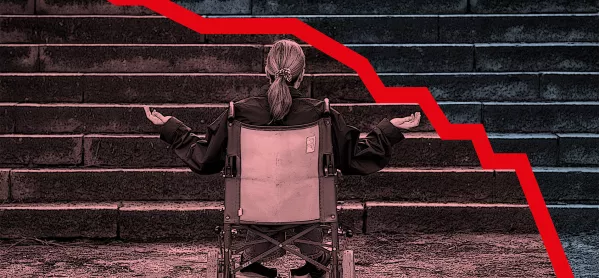Today’s report by the Commons Education Select Committee has produced arguably the most damning assessment of the crisis facing children with special educational needs and disabilities, and their families, to date.
It highlights what are now well-established concerns.
Poor implementation of SEND reforms to support children and young people have thrown families into crisis, put local councils under pressure and left schools struggling to cope.
Inspection: Call for schools to face new SEND inspection checks
Crisis: Generation of pupils being failed
Exclusive: More than two-thirds of this year’s SEND inspections identify failings
Investigation: How the EHC plan system is failing
And it warns that the underfunding has been a serious contributing factor to this crisis.
MPs say that the Department for Education set local authorities up to fail by making serious errors both in how it administered money intended for change, and, until recently, failing to provide extra money when it was needed.
But perhaps the most worrying conclusion of all is that this is about more than money.
The SEND crisis
The government has recently announced a £780 million increase in local authorities’ high-needs funding.
But today’s report notes that more money will be wasted, making little difference to the lives of children and young people with SEND “unless there is a culture change in schools, local authorities and government”.
Reading the report, you get the sense that the lack of money for SEND services is not the root cause of this crisis but actually a symptom of a bigger problem.
So many of the issues identified - whether it is underfunding, poor implementation of education health and care plans, a lack of accountability over the way in which services are being delivered or pupils being excluded from mainstream schools all speak to the same problem: getting this right has not been a big enough priority. Ultimately, children with special educational needs have not been a big enough priority.
If they had been then this situation would not have been allowed to go on for so long.
We are now in a position where, five years after government reforms were launched to better support children and young people with SEND, more than 50 per cent of the first 100 areas inspected have been found to have significant weaknesses in their provision.
There are so many sections of the report which speak to this issue. But this quote on how the DfE is monitoring its reforms is particularly telling.
“Accountability is not just counting and measuring, it is being held responsible for actions taken. Nobody appears to be taking any action based on the counting and measuring that is taking place, but, even worse, no one appears to be asking anyone to take responsibility for their actions.
“There appears to be an absence of responsibility for driving any change or holding anyone accountable when changes do not happen.”
The findings will no doubt resonate with campaigners who have been calling for more funding and better support.
The report follows a damning report by the Local Government and Social Care Ombudsman which warned that it upheld almost nine out of 10 complaints about SEND provision, and calls from local councils to ensure that schools are better held to account for their SEND pupils.
The DfE has also promised to carry out a review of SEND.
But what the families affected by this crisis need now is not reports and reviews but action to ensure that there is better support.
And this is where things become much more difficult.
The MPs’ report warns that there has been a lack of accountability around SEND.
It calls for more and stronger Ofsted inspections and for the ombudsman to be able to investigate complaints against schools to ensure SEND pupils have their needs met.
This is an attempt to redress the balance of an accountability system which the Association of School and College Leaders claimed today has been “penalising schools with vulnerable intakes”.
One can see why the recommendations have been made but the question is, are more performance measures what schools or pupils with SEND really need?





